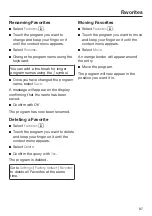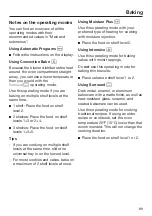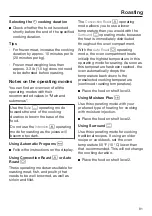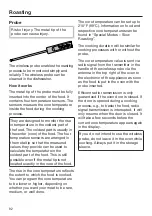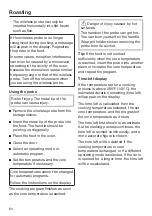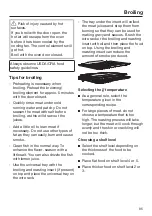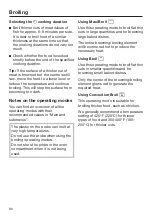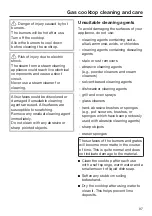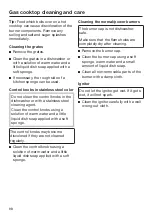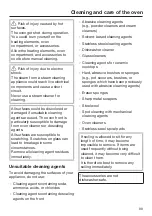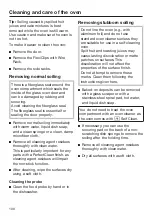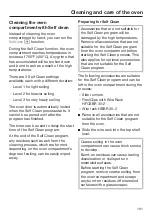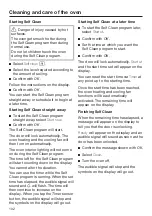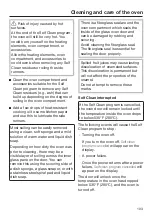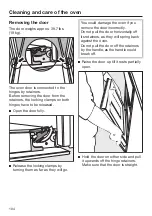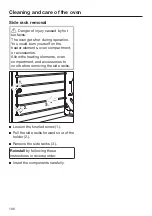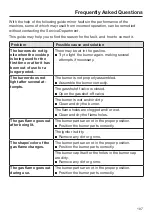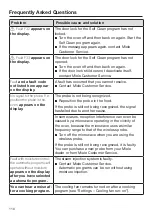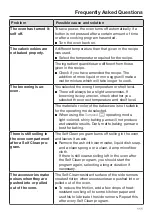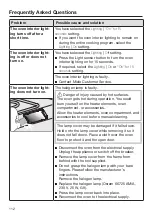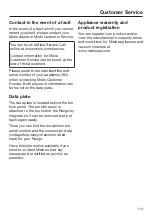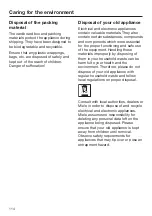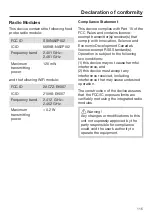
Cleaning and care of the oven
100
Tip:
Soiling caused by spilled fruit
juices and cake mixtures is best
removed while the oven is still warm.
Use caution and make sure the oven is
not too hot.
To make it easier to clean the oven:
Remove the door.
Remove the FlexiClips with Wire
Rack.
Remove the side racks.
Removing normal soiling
There is a fiberglass seal around the
oven compartment which seals the
inside of the glass oven door and
can be damaged by rubbing and
scouring.
Avoid cleaning the fiberglass seal.
The fiberglass seal is essential for
sealing the door properly.
Remove normal soiling immediately
with warm water, liquid dish soap,
and a clean sponge or a clean, damp
microfiber cloth.
Remove all cleaning agent residues
thoroughly with clean water.
This is particularly important for any
parts with a PerfectClean finish, as
cleaning agent residues will impair
the non-stick function.
After cleaning, wipe the surfaces dry
using a soft cloth.
Cleaning the probe
Clean the food probe by hand or in
the dishwasher.
Removing stubborn soiling
Do not line the oven (e.g., with
aluminum foil) and do not use
standard oven cleaners unless they
are suitable for use in a self-cleaning
oven.
Spilt fruit and roasting juices may
cause lasting discoloration or matte
patches on surfaces. This
discoloration will not affect the
properties of the surface finish.
Do not attempt to remove these
marks. Clean them following the
instructions given here.
Baked-on deposits can be removed
with a glass scraper or with a
stainless-steel spiral pad, hot water,
and liquid dish soap.
You do not need to treat the oven
compartment with an oven cleaner as
the oven comes with
Self Clean.
If necessary, you can use the
scouring pad on the back of a non-
scratching dish sponge to remove the
soiling after the holding time.
Remove all cleaning agent residues
thoroughly with clean water.
Dry all surfaces with a soft cloth.


